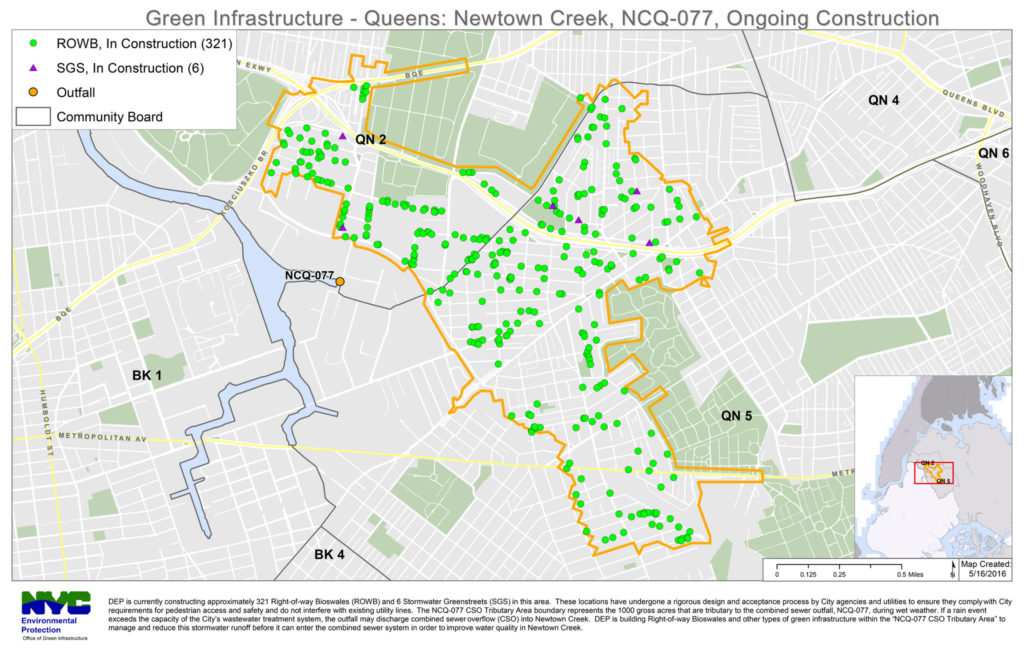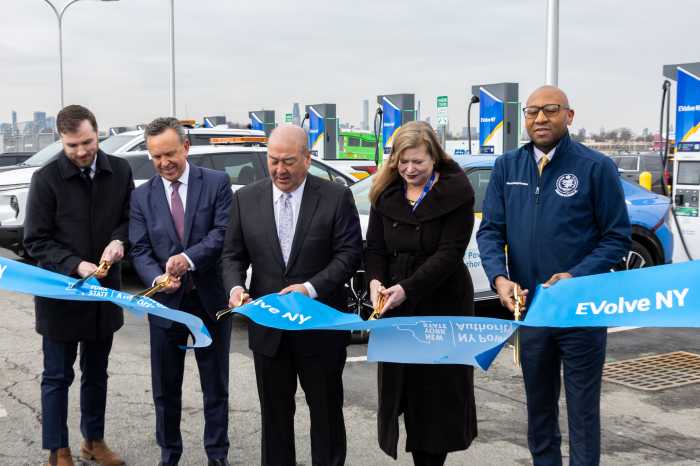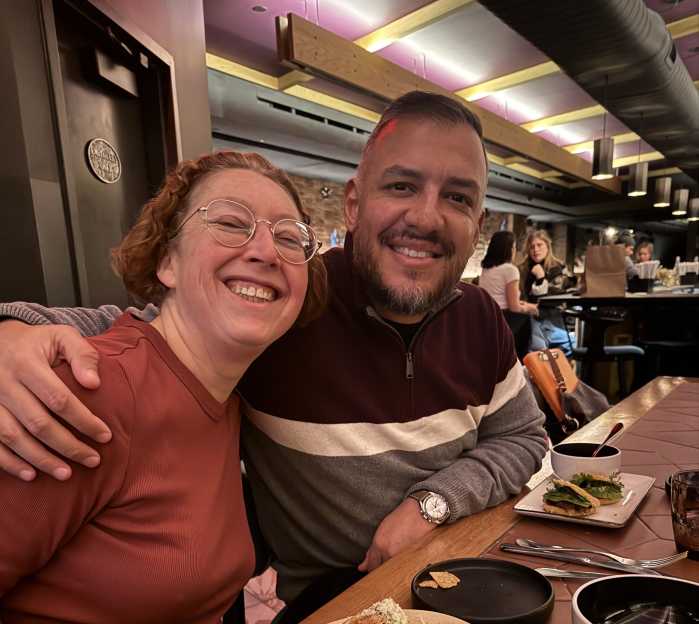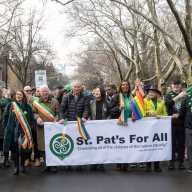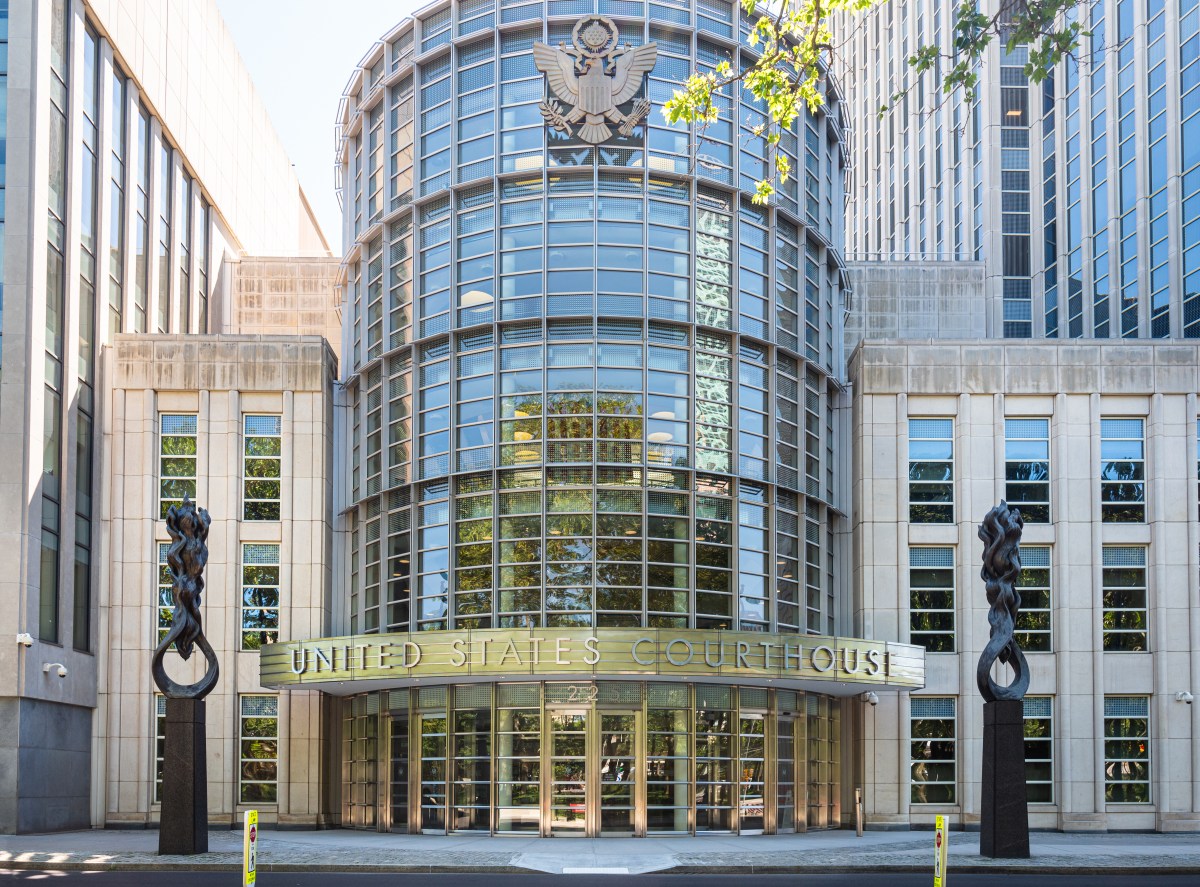The streets of Ridgewood, Maspeth and Sunnyside should all be a little dryer the next time it rains since the Department of Environmental Protection (DEP) and Department of Design and Construction (DDC) finished installing nearly 300 new bioswales in the neighborhoods last week.
Each of the bioswales — also known as rain gardens — in this $7.3 million project has the capacity to hold up to 2,500 gallons of stormwater, and the entire project expected to capture an estimated 38 million gallons of stormwater each year, helping to reduce the pressure on the sewer system and reducing the amount of overflows into Newtown Creek.
“Every drop of stormwater kept out of our local sewers is a tangible step towards improving water quality in Newtown Creek,” said Willis Elkins, program manager at Newtown Creek Alliance. “Specific tributaries, like Maspeth Creek and Dutch Kills, face significant environmental harm from combined sewage overflow and need continued attention and investment to meet Clean Water Act standards. We are encouraged to see these new rain gardens and look forward to DEP pursuing more well-planned and well-maintained Green Infrastructure in the future.”
Bioswales are built into city sidewalks, are 5 feet deep and are filled with layers of stone and engineered soil. The layers contain empty spaces that are able to store the stormwater and promote infiltration. They are designed to absorb the stormwater in less than 48 hours.
DEP usually builds bioswales in communities that are serviced by combined sewers, which collect rain water with domestic and industrial sewage and move it to a treatment plant. If the water overflows the sewer system, that contaminated water goes directly into Newtown Creek.
“Improving the health of Newtown Creek is a priority for DEP and we are excited that these completed rain gardens will capture stormwater, thereby reducing the amount of pollution that enters the waterway,” said DEP Acting Commissioner Vincent Sapienza. “This $7.3 million investment in green infrastructure will also beautify the streets and sidewalks of Maspeth, Sunnyside and Ridgewood, as well as help improve air quality.”
However, many residents are not on board with these rain gardens being installed in their neighborhoods, and specifically in front of their homes, with no notice to the owner of the property. Residents in northern Queens have been fighting for their right to say “no” to bioswales in front of their homes, and one resident from Maspeth claimed her sidewalk was damaged by workers installing the rain garden outside of her home.
Another point of contention against these bioswales is the question of who will maintain the space.
The city states that dedicated maintenance crews are responsible for making sure the bioswales are functioning properly, and are instructed to remove any trash build up in the gardens and maintain the vegetation.
